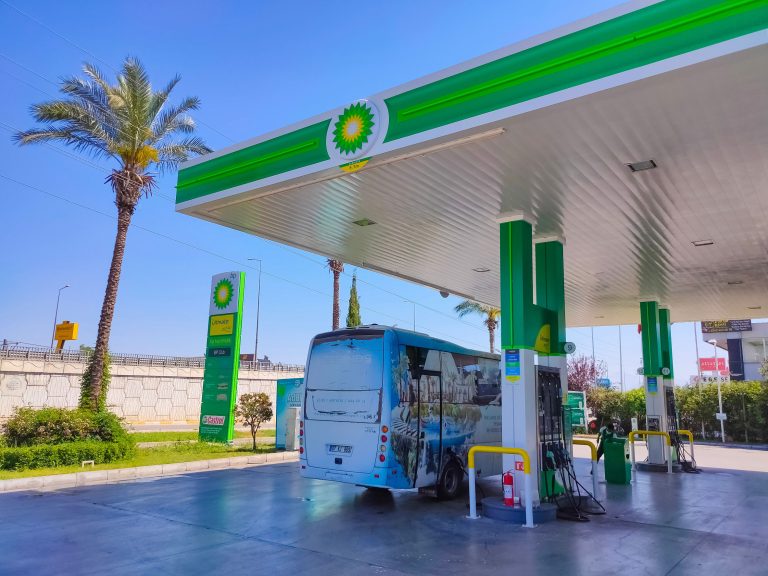BP has scrapped its commitment to cut oil and gas production as CEO Murray Auchincloss shifts the focus back to traditional energy sources in response to investor demands for improved returns, according to a report by Reuters.
The goal to cut oil and gas production by 40% by 2030 was initially hailed as the most aggressive in the energy sector when it was introduced in 2020.
The move signals a shift in BP’s energy transition strategy under CEO Murray Auchincloss, who took over in January 2024.
Abandoning ambitious 2030 oil and gas output targets
When Auchincloss’ predecessor Bernard Looney introduced the 40% reduction target, BP aimed to significantly reduce carbon emissions and ramp up investments in renewable energy.
However, the company scaled back that target in February 2023 to a 25% reduction by the decade’s end, aligning with broader investor expectations for short-term gains over long-term green ambitions.
Now, BP is turning its attention to boosting oil and gas output through new investments in regions like the Middle East and the Gulf of Mexico.
Since becoming CEO, Auchincloss, formerly BP’s finance chief, has made it clear that his priority is to restore investor confidence by delivering higher returns.
This comes after BP’s share price has consistently underperformed its competitors, raising concerns among investors about the company’s profitability under its current strategy.
In an effort to distance himself from Looney’s approach, Auchincloss is pulling back on some of BP’s energy transition goals to focus on the most profitable businesses—primarily oil and gas.
BP still maintains its longer-term goal of achieving net zero emissions by 2050, but the focus is now on simpler, more targeted strategies. A BP spokesperson said,
“As Murray said at the start of the year… the direction is the same – but we are going to deliver as a simpler, more focused, and higher value company.”
Auchincloss is expected to present his revised strategy, including the removal of the 2030 oil output reduction target, at an investor event in February next year.
While BP’s specific production guidance remains unclear, abandoning this key target indicates a marked shift in the company’s operational priorities.
BP in talks to invest in oil and gas in the Middle East and Gulf of Mexico
BP is pursuing several new oil and gas projects in the Middle East, with sources revealing plans to invest in three major developments in Iraq.
This includes the Majnoon field and a deal with the Iraqi government to develop the Kirkuk oilfield in northern Iraq, a project that will also incorporate the construction of power plants and solar capacity.
The new contracts will reportedly offer BP more favourable profit-sharing terms than previous arrangements.
In addition to the Middle East, BP is ramping up its activity in the Gulf of Mexico, announcing its decision to go ahead with the development of the Kaskida and Tiber fields, both large and complex reservoirs.
The company is also considering acquisitions in the Permian Basin, a key area for onshore US oil production.
This would further expand BP’s presence in the region, where it has already increased its reserves by 2 billion barrels since acquiring assets there in 2019.
Pull back on renewables mirrors industry trend following Ukraine invasion
Despite BP’s continued investment in some low-carbon projects, such as acquiring full ownership of its solar power joint venture Lightsource BP, the company has scaled back its ambitions in renewables.
Auchincloss has paused investments in new offshore wind and biofuel projects and reduced BP’s portfolio of low-carbon hydrogen projects from 30 to 10.
This recalibration of BP’s energy transition efforts comes as rising costs and supply chain disruptions challenge the profitability of renewables.
The shift mirrors actions taken by other industry players, including Shell, whose new CEO Wael Sawan has similarly scaled back on renewable projects in favour of more traditional energy investments following the energy crisis triggered by Russia’s invasion of Ukraine.
As BP faces mounting investor pressure to prioritize near-term profitability, Auchincloss is attempting to strike a balance between maintaining the company’s long-term commitment to net zero emissions and ensuring its short-term financial health.
The company’s strategy recalibration reflects the broader industry’s struggle to navigate the financial challenges posed by the energy transition while continuing to deliver strong shareholder returns.
The post BP shifts gears, scales back renewables to regain investor trust: report appeared first on Invezz

